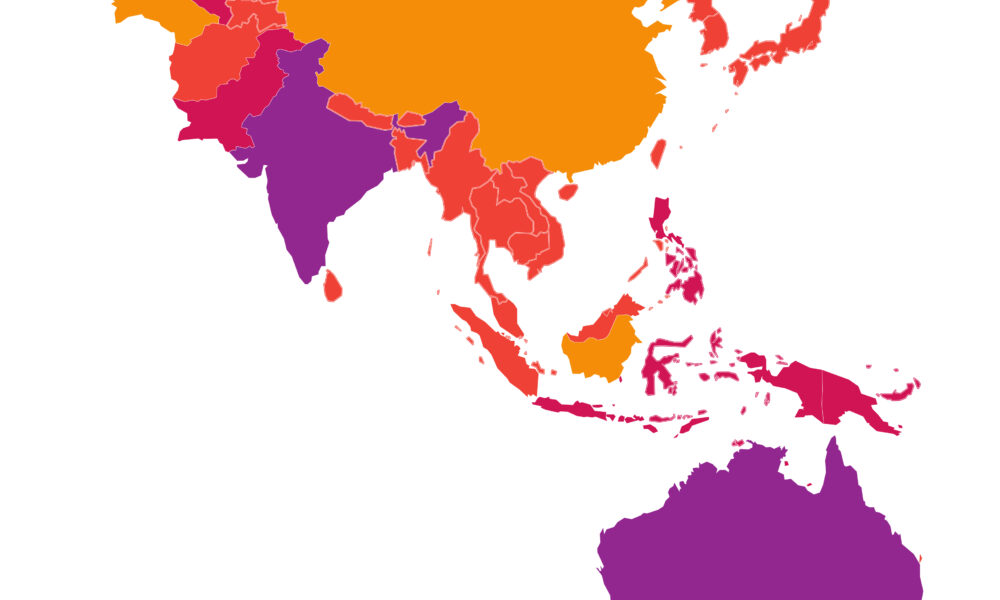Richard Howarth, Chief Business Officer – APAC for Gaming Laboratories International (GLI), oversees a region that may be the most complex in global gaming. Stretching from highly regulated markets like Australia and Macau to emerging jurisdictions such as Thailand, Cambodia and the Philippines, Asia Pacific presents suppliers and regulators with a constant balancing act between innovation, compliance, and cultural nuance.
“We’re looking at ensuring the integrity, compliance and readiness of gaming systems so that suppliers, operators and regulators can operate with confidence,” Howarth said. “Confidence that is a system and an ecosystem…that actually works.”
The dynamics of APAC
Howarth calls Asia Pacific “an incredibly dynamic and diverse gaming market, probably one of the most dynamic in the world.” Its contrasts are stark. In Australia and Macau, suppliers face highly mature markets with rigid compliance frameworks. In Thailand and other developing jurisdictions, legislation is still being debated.
This divergence places pressure on suppliers. “It means mainly for supplier customers that they have to vary their product significantly between those jurisdictions within a small portion of an APAC area,” Howarth explained. “Evolving product and developing product against rigid reforms is a real challenge for suppliers.”
Language adds another level of complexity. “When you are doing language interpretation, it can be quite a complex process, because clearly you are looking at cultural norms, not just language verbatim changes,” he said.
Testing the ecosystem
GLI’s system testing extends far beyond individual machines. The focus is on entire casino management environments and their interdependencies.
“You are ensuring that everything works within that ecosystem,” Howarth said. “That means Responsible Gambling elements are linked to it. Payment systems are linked to it. Clearly, the EGMs are linked to it. AML standards are linked to it. Taxation payments are linked to it.”
Today, the most frequent testing involves cashless gaming, digital wallets and pre-commitment systems, areas that have become central to regulatory reform. GLI teams are embedded with operators and also conduct independent testing for regulators. In one case, Howarth noted, GLI’s work enabled an operator in Australia to regain its license suitability.
Reform meets innovation
The tension in APAC comes from two directions: regulators introducing responsible gaming requirements such as mandatory carded play, and suppliers leveraging technology for new wagering and iGaming channels.
“The job gets more exciting,” Howarth said. “That is why we have brilliant engineers…challenged every day to understand what technology advances we need to stay in front of for all of our customers.”
Speed as competitive advantage
For suppliers, speed to market is critical. Certification delays mean lost share in highly competitive environments. Howarth stressed GLI’s advantage in this area.
“Typically it is very quick. Yes, our expertise in knowledge on that system level…when you are in a beneficial position of understanding that system infinitely, then you are in a much better position to be a lot quicker, 50 percent plus quicker than if, in fact, I would say more than if a fresh competitor came in, or someone new to that system came in and tried to do it.”
GLI also supports new customers by embedding engineers for on-site immersion. “If we do have a brand-new customer which does have a level of complexity around their total systems offering, we will put our engineers in there, free of charge, for a week or so to really thoroughly understand that platform before we do anything else,” Howarth said. “It is massively beneficial moving forward for the supplier, because they know, when they get a skilled GLI engineer in there, they know the platform already, and they are off and running.”
Large-scale testing in action
One example illustrates both the scale and the precision of GLI’s work. In partnership with the Victorian Gambling and Casino Control Commission, GLI conducted an extreme load test across more than 27,000 electronic gaming machines in 400 venues.
“To be able to press on 27,000 machines on exactly the same time, to be hitting on exactly the same load level, is pretty unique,” Howarth said. “It makes a real difference to that process and the Victorian government’s confidence, again, that their system in place will work under a condition that you would actually never meet and never have in a normal market condition.”
The project took about three weeks to execute and report, after a short preparation period. For regulators, the outcome was confidence that reforms introducing monetary and time-based pre-commitments would perform under pressure.
Presence and scale
GLI’s role in Asia Pacific is underpinned by long-term presence. The company has operated in Australia and New Zealand for more than three decades and opened its Macau office in 2004.
That local footprint is supported by global reach. “The fact that we are in 710 plus jurisdictions around the world means that, and we do it every day, if we have a problem somewhere that we need to try and tackle for a customer, 24/7, I can put it out to the GLI community, and there will be some level of answer that comes back real quick,” Howarth said. “And typically it is an answer that is spot on and helps that client move forward.”


